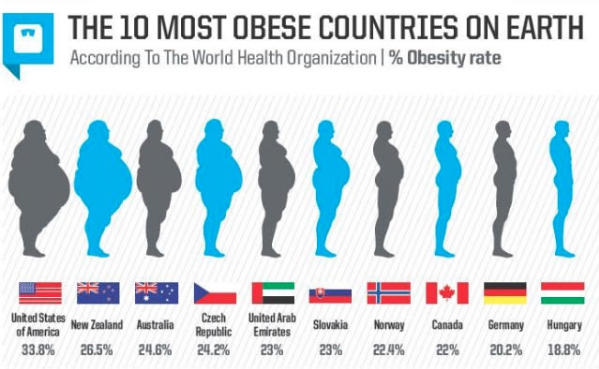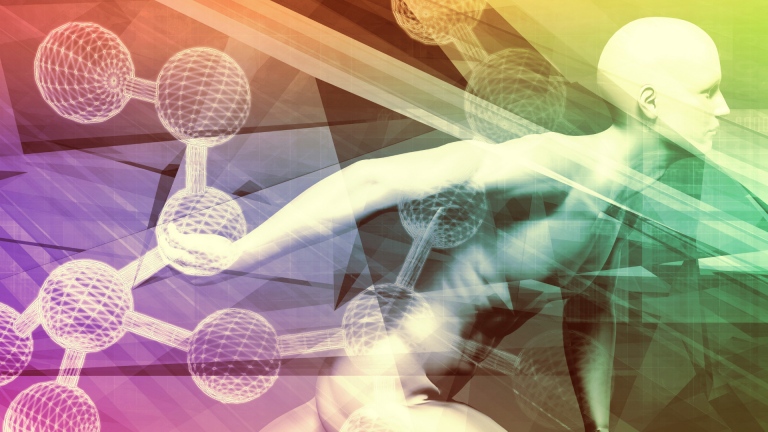Here are 13 Health Problems Related to Obesity
What Is Obese? The BMI is one of the measured (To body mass index): 30% and higher is considered obese. That extra weight, especially the fat around your waist, can lead to health issues that often feed off each other. Shedding pounds may prevent, slow down, or even reverse many obesity issues. More than a third of U.S. adults are considered obese. The test consisted of 75 obese men. From 2007 to 2010, these men had been active patients at an obesity center.
The study included testing their hormones, body composition, and body fat. Additionally, they were required to fill out a questionnaire designed to help better understand if there was any androgen (male hormone) deficiency. The topics addressed included erectile dysfunction, diminished sex drive, and other libido-affecting matters. Of these men, 17 of them participated in gastric bypass surgery.
They were then reassessed three and twelve months later. When the assessment was first initiated, of the 75 patients, 54 showed indications they were suffering from testosterone deficiency, and Seventeen of those men were clinically diagnosed with low testosterone in men.
13 Health Problems Related to Obesity
01) Trouble Breathing
You could get winded quickly while doing simple activities like climbing stairs. Extra weight can make asthma symptoms and COPD worse. Inflammation linked to belly fat may also affect your lungs. You could get turned while doing simple activities like climbing stairs. Excess weight can cause asthma symptoms and COPD worse. Your more substantial body may prevent your lungs from expanding entirely, so you can’t take enough air in, and your breathing muscles may not work either.
02) Fatty Liver Disease
Symptoms may not appear until the damage has progressed. When fat builds up in your liver, it may make scar tissue (a condition known as cirrhosis) that can eventually shut your liver down wholly. Doctors don’t know what causes fatty liver disease, but you’re more likely to have problems when you’re overweight, especially in middle age.
03) Osteoarthritis
More body fat may also trigger more inflammation. Just 5% less body weight will take pressure off your hips, lower back, and knees. More weight puts more strain on the cartilage that protects the ends of your bones and joints and causes pain and stiffness. Exercise is one of the best things you can do for arthritis.
04) High Cholesterol
While your genes have some influence, what you eat and how much you exercise also play a role. Unhealthy foods can raise weight and “bad” LDL cholesterol and triglyceride levels. So you eat fewer calories; foods with soluble fiber — like oats and other whole grains, beans, apples, grapes, strawberries, eggplant, and okra — will help lower your cholesterol and fill you up.
05) Gallstones
The most common type is made up of mainly cholesterol. Your bile may have more cholesterol because your blood cholesterol or triglyceride levels are high. You may also have extra estrogen from birth control, hormone replacement therapy (or you take medicine to lower them), or pregnancy. If bile, a type of digestive fluid, doesn’t move through your gallbladder as it should, it could harden into pebbles. Obesity in women over men has higher odds of getting them.
06) Type 2 Diabetes
About 8 out of 10 people who get type 2 diabetes are overweight. Belly fat may link to insulin resistance. That’s when your body makes insulin, but your cells can’t use it properly to get glucose out of your blood. Higher-than-normal blood sugar can become diabetes, leading to trouble with your heart, nerves, eyes, and more. But losing weight may help with its symptoms and prevent complications.
07) Gout
A heart-healthy diet and exercise habits may lower uric acid and your weight. The built-up uric acid in your body can form needle-like crystals and make joints like your knee hurt, big toe, and Ankle; the likelihood of a flare increases with the number on the scale or the amount of belly fat you have, high blood sugar, and cholesterol problems.
08) High Blood Pressure
Your doctor will probably tell you or recommend that you exercise 20-30 minutes most days, limit sodium to 1,000 milligrams daily, and don’t smoke. When your body is large, your heart has to pump harder to help get blood to all your cells; the force pushes on your artery walls and may damage them. Getting your BMI close to 25 often helps bring blood pressure down.
09) Hardened Arteries
Narrow or clogged vessels can’t get enough blood to the cells in your organs and tissues; obesity — and diabetes, high blood pressure, high cholesterol, and inflammation — can wear on your arteries, making them thick and stiff. Although you may not have any symptoms initially, poor circulation may eventually lead to a stroke, heart attack, or heart failure.
10) Kidney Disease
Your kidneys filter blood and help control your blood pressure. That can also lead to a dangerous buildup of waste in your body. Kidney disease can be a complication of diabetes and high blood pressure, yet it can also be partly a direct result of obesity. But they can’t do their jobs when fat builds up inside them, or the blood vessels are clogged.
11) Sleep Apnea
It can make you tired and groggy, leading to mood, memory, and heart problems. Also, a round neck can narrow your airway, making breathing harder, especially at night. You might even snore loudly or stop breathing several times during the night. When that happens, you aren’t getting the restful sleep you need.
12) Pregnancy Issues
There’s a higher chance that you’ll need a C-section to give birth nowadays and that your baby could be born too soon, be stillborn, or have brain or spinal cord problems. Moms who are overweight will be more likely to get gestational diabetes, dangerously high blood pressure, and preeclampsia, which can harm both you and your baby. Work with your doctor to manage your weight safely when you’re pregnant.
13) Cancer
Eating healthily and staying active will help avoid disease, regardless of weight; when you gain weight as an adult, it makes you obese or ever weight, and you’re more likely to get some, including breast cancers, colorectal, endometrial, and kidney.
The study denoted that the higher a man’s body mass index, as well as their waist circumference and body fat percentage, the more depleted their testosterone levels were. Dr. Thissen advocated, “This correlation suggests a potential causal relationship between obesity and low testosterone.” The seventeen men who underwent gastric bypass surgery lost an average of approximately 90 lbs. Twelve months later, there had been a significant increase in their natural testosterone production. After the weight loss and the 12 months, they were considered to be in the normal range.
This confirmed a reversal of testosterone deficiency, as reported by Dr. Thissen. We see in this study that weight affects testosterone levels in men significantly. If you are a man, overweight, in the process of bettering his health, talk to us. We can help you elevate your testosterone levels while you are in the process of losing weight.
It may help you with your overall goals. Still, its positive effects on sexual function, energy levels, and overall well-being make it an essential part of any health-focused regimen. Call us. We help you qualify for testosterone therapy and help you address your concerns and goals.
Testosterone Injections are the most common treatment for men going through andropause. This therapy may provide help and relief from the symptoms and help improve the quality of life in many cases. Lifestyle changes such as increased exercise, stress reduction, and proper nutrition also help. Testosterone therapy is available in different forms; ask your doctor. He will help determine which treatment is best for you.
**NOTE** The content in this blog is subject to interpretation and is the opinion of the content writer. We do not claim it to be fact. We encourage you to consult a medical doctor before taking any prescribed medications or supplements.
Conclusion
Supporting Hormones health is essential for overall well-being and vitality. By incorporating regular exercise, proper nutrition, adequate sleep, stress management techniques, and IV therapy, you can help maintain optimal testosterone levels and lead a healthy, balanced life. Always consult a healthcare professional before making significant changes to your lifestyle or starting any new treatments to ensure they suit your needs.
At AAI Rejuvenation Clinic, we advise anyone to think seriously about beginning Hormone treatment if there is no medical need for it. However, we will take every precaution to ensure that you read your program’s positive benefits by providing the latest at-home hormonal mouth-swab testing to ensure we are continually monitoring your progress and aware of any adverse side effects. Fill out the Medical History Form, or if you need more information, call us at (866) 224-5698 or (866) AAI-Low-T.
Low Hormone Symptoms
- Motivation
- Sex Drive and Desire
- Depression
- Fatigue
- Erectile Dysfunction
- Cholesterol
- Low Energy
- Memory Loss
- Osteoporosis
- Wounds & Illness
- Muscle Mass
- Sleep Disturbances
- Thyroid Dysfunction
- Weight Gain
]]>





